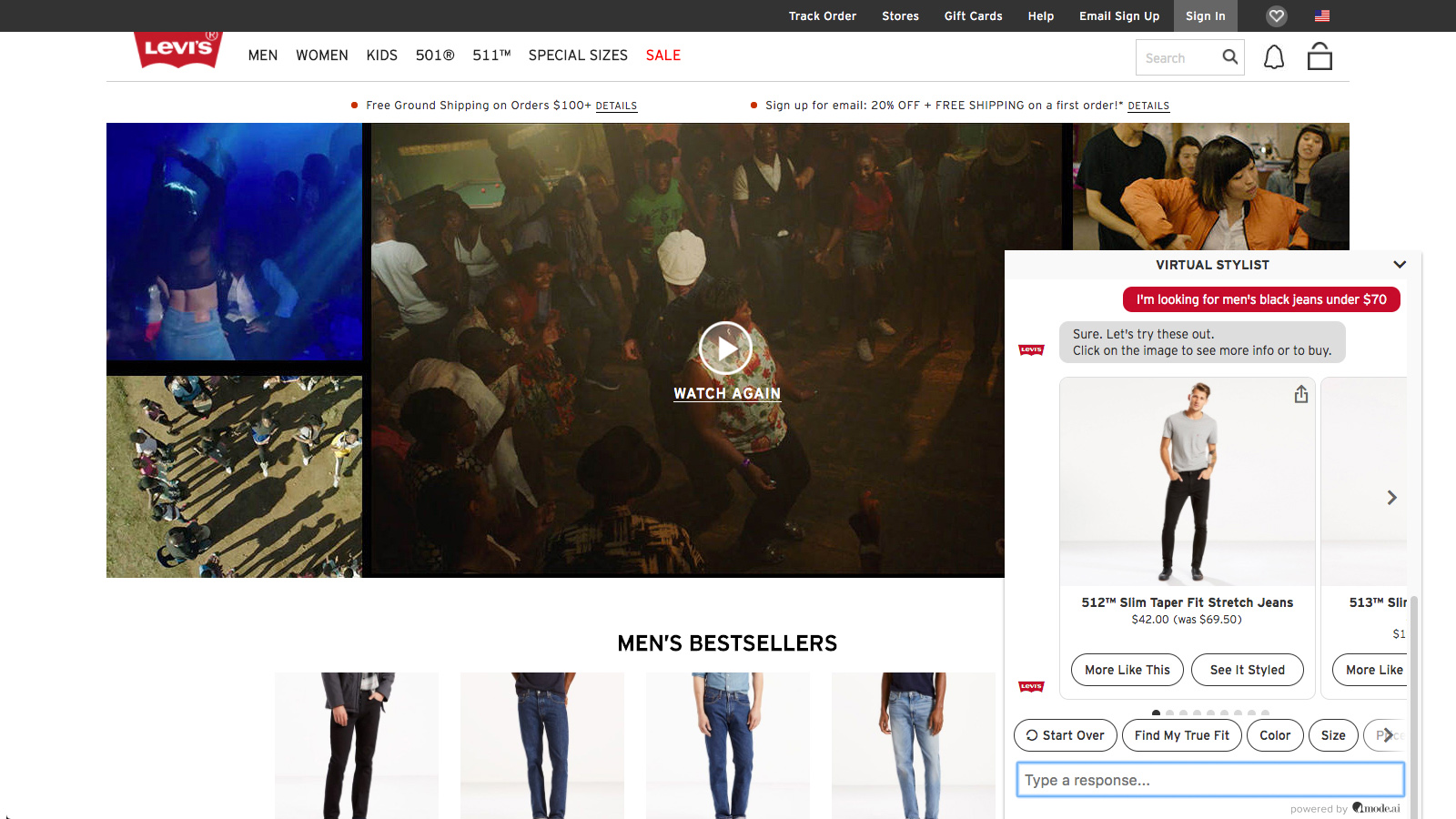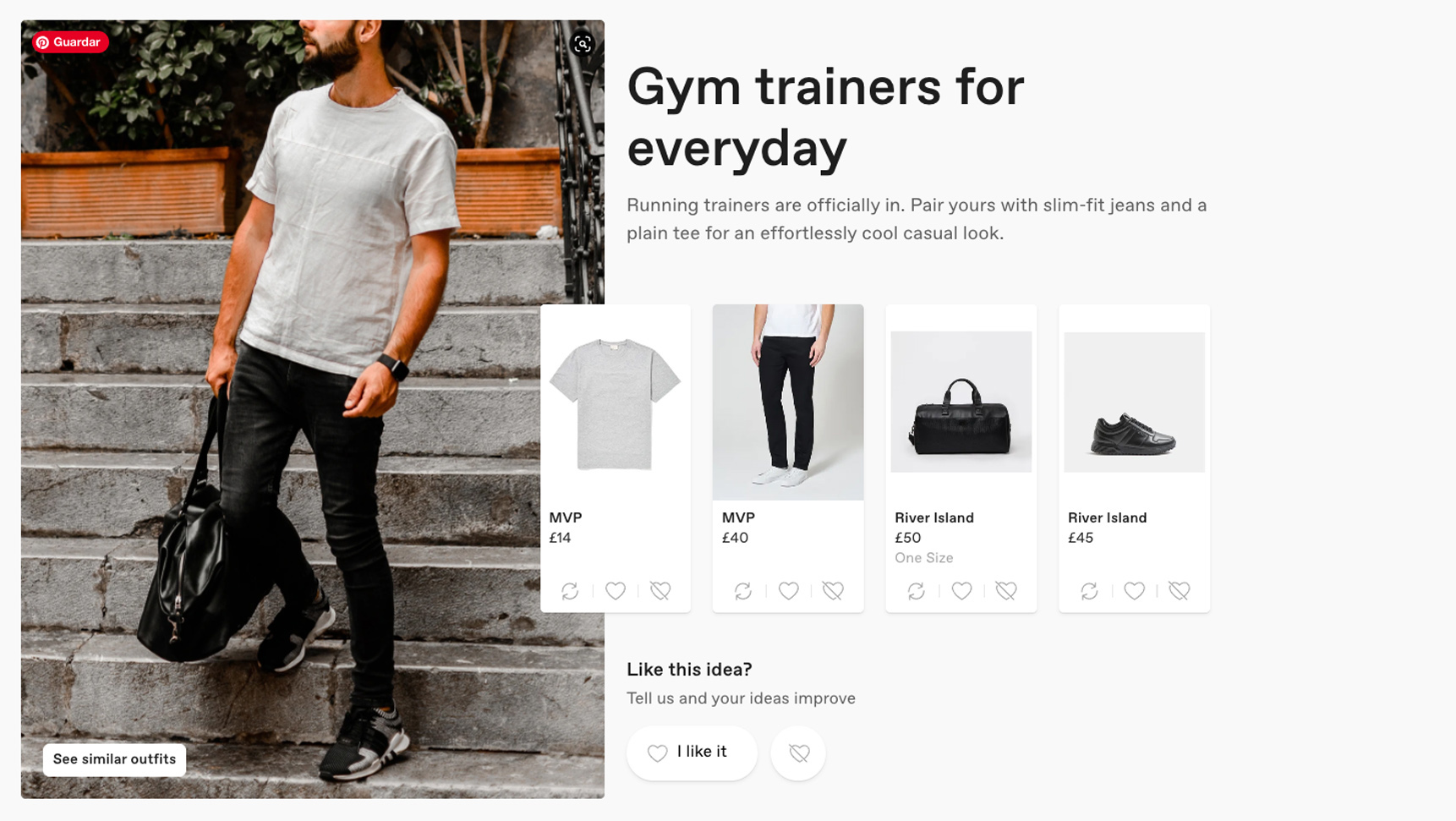This creates a conversational assistant that combines the salespeople’s experience with the capabilities of artificial intelligence to provide fashion tips online for customers, thereby creating an easier, more personalised shopping experience while democratising access to a service that has traditionally been reserved for the wealthiest.
Business benefits
Fashion shop assistants are qualified stylists who not only know very well what stocks are in the shop, but also the garments’ attributes and how they complement different body types, skin tones and hair or eye colours, so they can directly bring customers the garments that will best suit them. Furthermore, they are also up-to-date with the latest trends, while listening to and respecting each person’s tastes. Virtual personal shoppers take the best of the real shopping experience and take it into the digital universe, with the advantage that a machine learning algorithm can instantly search among millions of options to suggest just a handful for one person. “Many clothes labels know that being spoilt for choice is a real problem and they are thinking of ways to overcome that. It’s quite difficult to revolutionise your shop if you’re not backed by technology,” explains Alex Allcott, brand director at Thread, in an interview with Marketing Week. Another reason why some brands use virtual assistants with AI is that unlike humans, it never forgets anything, however many years pass by. Since such systems are able to remember all the clients’ preferences and learn about their behaviour, they make the advice process completely scalable. What’s more, the algorithms understand hue adjustments that humans cannot discern, thus removing any bias on choosing. In order to provide online, personalised style advice, this not only brings about a better shopping experience and operational efficiency, but also helps improve the sales conversion rate. According to some studies, customers who get style advice have a conversion rate that is 130% greater than those who receive none, and the ROI for this type of system can end up multiplying the cost of the service by 15 times.
Technology
Digital assistants
Artificial vision
Recommendation systems
Challenges tackled
Successful cases
Levi’s have a personal shopping assistant available online and on Facebook Messenger that takes all of their accumulated experience in terms of their garments’ style and fit, and puts it within reach of their clients 24/7, creating a more personalised, simple shopping experience when and where they want. Their chatbot goes a step further than algorithms to include the real training given to the stylists in Levi’s shops. The virtual stylists ask questions like “How would you like the jeans to fit around your hips and thighs?” to explore the shoppers’ preferences as regards the shape of the garment’s leg, waist height and elasticity so as to give completely personalised recommendations. This innovative approach is part of the big boost Levi’s is giving to its online store through technology to improve the consumer’s shopping experience—and ultimately boost sales. “We are at the forefront of the challenge faced by retailers today: how to create a fluid, personalised shopping experience for consumers; and new technologies like our virtual stylist are an integral part of that evolution in Levi’s,” explained Marc Rosen, executive vice president and director of eCommerce, on presenting this new service.

The London start-up Thread has come up with a new way of buying clothes online. Their website combines stylists’ experience with artificial intelligence and machine learning to create a better, much more personalised shopping experience. The customer only has to choose the photos they like the most from a selection of different styles and give some details about their age and price ranges. The algorithms then search among 700 labels for the products that best match their personal preferences, thereby saving them the frustration of having to visit hundreds of pages of items and dozens of websites until they find what they are looking for. Thread also assigns each and every user a personal stylist to whom they can send specific questions or requests, so that the stylist can then curate their landing pages. This combination of human and digital capabilities has worked so well for them that they now have over a million subscribers, 25% of whom only shop in Thread, and they are experiencing interannual sales growth of nearly 80%.



